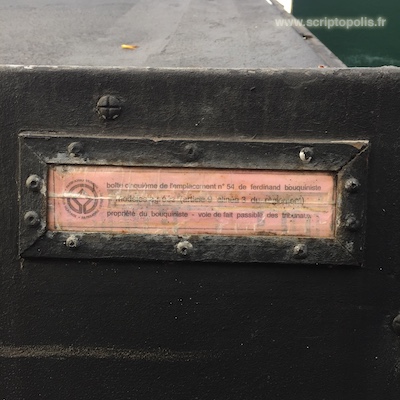Licensed activity
The approval of Parisian bouquinistes refers to a political-administrative practice from the seventeenth century: the control by a royal legal deposit and a corporation of booksellers that restricted the circulation of printed matter and regarded street vendors and the ideas they peddled with suspicion. In 1859, under the Second Empire, the approval of vendors became a concession aimed not at monitoring content, but at organizing the secondary book market. Then, public interventions followed one another to standardize, then to patrimonialize the Parisian landscape by inscribing the famous boxes and their operators in the aesthetics of the city: the “wagon green”, the 10 meters of parapet, the size of the boxes, the label visible from the street for the controllers, etc.
It is only recently that the Paris City Council has again inquired, not only about the form, but also about the content of the boxes. Since 2009, it has been checking that bouquinistes like Ferdinand, who occupies location no. 54, have no more than one of its five approved boxes dedicated to souvenirs (Eiffel Tower key rings, berets and other magnets), stabilizing, through political-administrative practices, a new definition of bouquinistes, listed in the inventory of France’s intangible heritage.







